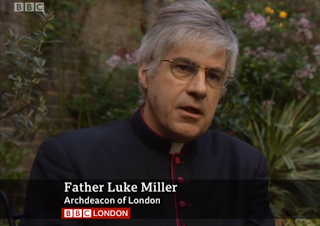Funeral Standards for London
Today I helped launch the Funeral Standards for London.
In support of recently published Government guidance, London’s Strategic Coordination Group (SCG) has today [19 April] released a set of Funeral Standards to provide clarity and reassurance to families facing the burial or cremation of a loved one during the current pandemic.
The Standards, which were developed by the Faith and Belief Cell of the SCG for Londoners of all faiths, beliefs and none, respond to the need for families to not delay funerals after someone has died whilst being able to shape some aspects of how they say goodbye. They offer a set of criteria to apply in all circumstances wherever public safety and operational capacity allow.
Funerals in London will remain as normal as possible for as long as possible while observing social distancing regulations and the Standards may evolve according to need as the pandemic continues.

Launching the Funeral Standards for London
The Funeral Standards grew from the need to mark the end of a loved one’s life with dignity, compassion and respect coupled with the requirement to minimise the spread of infection and to save lives.
They set out that even funerals without congregation should have a celebrant or minister in accordance with the faith or belief of the one who has died.
No one should journey alone.”
London’s Funeral Standards:
1. The family’s choice of burial or cremation for their loved one should be respected, in line with the requirements and conditions set out in the Coronavirus Act 2020.
2. A celebrant (minister) of the family’s choice of faith/belief should always be present if the family wish at the funeral even if there is no congregation at all, recognising that this may not be the individual of their choice.
3. As far as possible, name and contact details for the family should be given to the celebrant by the funeral director a minimum of one day before the funeral to allow contact with the family.
4. Attendance at funerals should be limited to those from within the household or close family of the loved one – their partner, children, parents and siblings. This includes deaths which do not arise from Covid-19. Individuals who are from a household that is self-isolating should not attend a funeral gathering if they have any symptoms of any kind, even if these are very mild. Updated guidance issued by government on April 19 details where exceptions can be made to the 'stay at home advice' that is currently in place to allow families and friends to attend funerals and say goodbye to loved ones. This includes those who are self-isolating or who have been defined as extremely clinically vulnerable, should they wish to attend. However, attendance at funerals should be agreed in consultation with the appointed funeral director.
5. Ceremonial words should be said in line with the family’s choice of faith or belief but these may be truncated from usual funeral rites.
6. An offer to facilitate livestream via social media should be made. However it is recognised that not all Crematoria /Cemeteries have adequate WiFi/signal to achieve this. Where this is known to be the case (and where it is not), the family may prefer the funeral to be filmed so that it can be shared afterwards.
7. Faith and belief communities should, within their understanding of what is possible, offer memorial services and subsequent commemorations to bereaved families.
8. Bereavement support should be offered. This Covid-19 toolkit from Thrive LDN may be helpful in this regard.
9. Organisations which charge fees (funeral directors, celebrants, crematoria, cemeteries etc) are asked to work together to achieve consistency and transparency in what they charge in these circumstances.
2. A celebrant (minister) of the family’s choice of faith/belief should always be present if the family wish at the funeral even if there is no congregation at all, recognising that this may not be the individual of their choice.
3. As far as possible, name and contact details for the family should be given to the celebrant by the funeral director a minimum of one day before the funeral to allow contact with the family.
4. Attendance at funerals should be limited to those from within the household or close family of the loved one – their partner, children, parents and siblings. This includes deaths which do not arise from Covid-19. Individuals who are from a household that is self-isolating should not attend a funeral gathering if they have any symptoms of any kind, even if these are very mild. Updated guidance issued by government on April 19 details where exceptions can be made to the 'stay at home advice' that is currently in place to allow families and friends to attend funerals and say goodbye to loved ones. This includes those who are self-isolating or who have been defined as extremely clinically vulnerable, should they wish to attend. However, attendance at funerals should be agreed in consultation with the appointed funeral director.
5. Ceremonial words should be said in line with the family’s choice of faith or belief but these may be truncated from usual funeral rites.
6. An offer to facilitate livestream via social media should be made. However it is recognised that not all Crematoria /Cemeteries have adequate WiFi/signal to achieve this. Where this is known to be the case (and where it is not), the family may prefer the funeral to be filmed so that it can be shared afterwards.
7. Faith and belief communities should, within their understanding of what is possible, offer memorial services and subsequent commemorations to bereaved families.
8. Bereavement support should be offered. This Covid-19 toolkit from Thrive LDN may be helpful in this regard.
9. Organisations which charge fees (funeral directors, celebrants, crematoria, cemeteries etc) are asked to work together to achieve consistency and transparency in what they charge in these circumstances.



Comments
Post a Comment